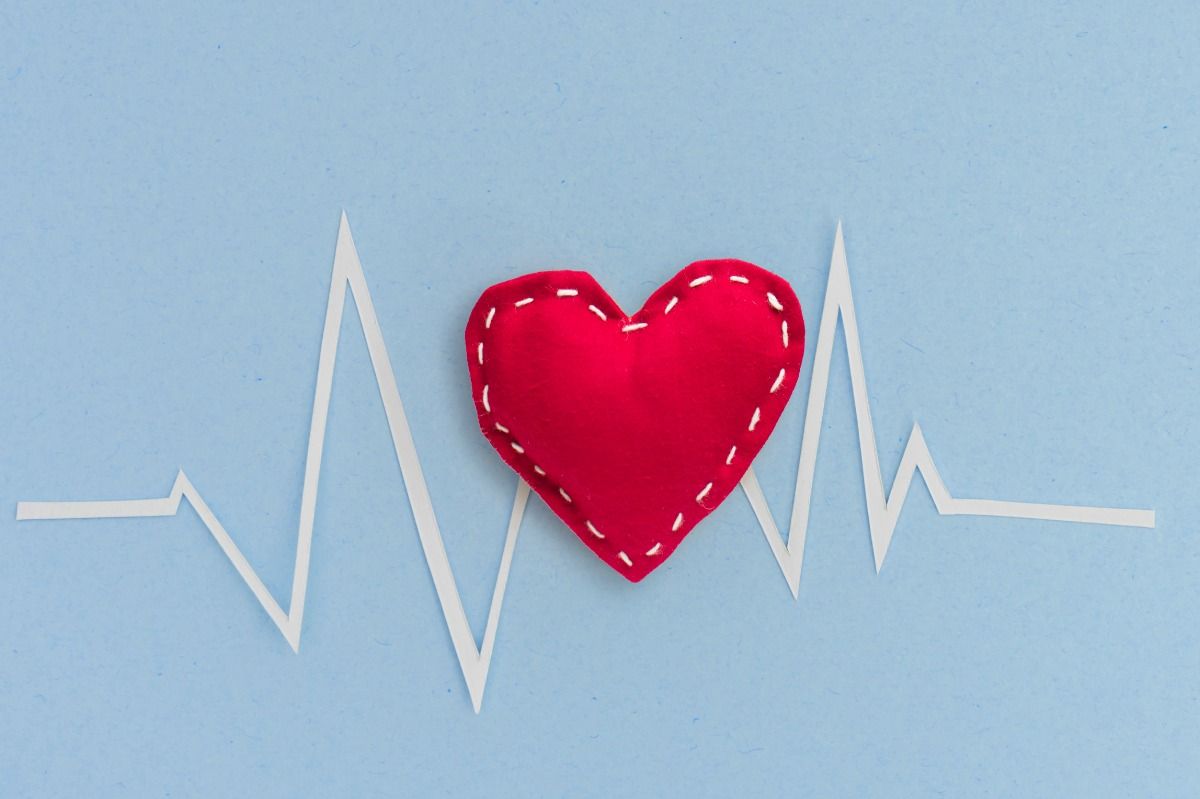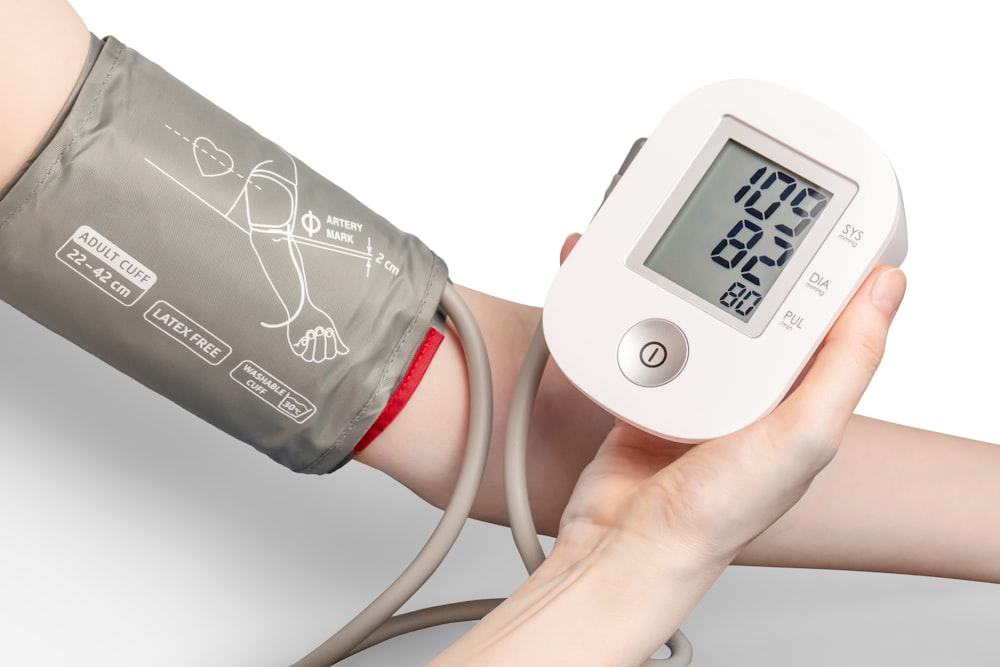
Your heart health is not something to neglect. In the United States alone, the CDC shares that one person dies every 36 seconds from heart disease. Global health statistics from the World Health Organization state that 17.9 million people die of cardiovascular disease every year. Heart disease is the leading cause of death for both men and women. Unfortunately, many people are not aware they have heart problems until they experience a heart attack or heart failure.
You do not want to wait for a near-fatal episode to verify the state of your cardiovascular health. Fortunately, you can count on preventive measures to help stay on top of your heart health. You don’t want to be one of those irresponsible people who only visits the doctor when they’re sick, instead of scheduling regular annual physical exams. Preventive healthcare is an absolute must if you want to have good health and enjoy longevity. Learn the importance of various heart health check-ups below:
Critical Heart Screening Tests
Even if you feel fine or don’t have any cardiovascular problems, as an adult you should still take time to see your cardiologist. A cardiologist is a doctor who specializes in the cardiovascular system, which pertains to your heart and blood vessels. These routine screenings are an excellent way to detect risk factors and prevent severe heart ailments. In addition, with proper testing, your doctor can create the best treatment options for you, from modifying lifestyle habits to taking maintenance meds. Check out the primary heart health screening check-ups recommended for preventative health measures:

Blood Pressure Check
High blood pressure is a vital screening tool to promote heart health. Usually, in the early stages, high blood pressure or hypertension has no symptoms, so you can’t detect it unless you use a blood pressure cuff to measure your BP readings. Hypertension puts a strain on your heart and causes severe damage to the arteries or blood vessels. When left untreated, you can develop blood clots, increasing your risk of heart attack, heart failure, or stroke. If your blood pressure is below 120/80 mm Hg, you can get it checked bi-annually beginning at 20 years old. If it is higher than that or you have a strong family history of heart disease, your doctor may want it monitored more often. Thankfully, you can buy a sphygmomanometer for home use in any pharmacy. On top of that, you can lower your blood pressure with lifestyle changes and maintenance medications.
Lipid Profile Test (Cholesterol and Triglycerides)
Ideally, you must have a fasting lipid profile test every 4 to 6 years, starting at 20 years old. The frequency depends on your health risk factors like diet and family history. Knowing your cholesterol levels is vital because high cholesterol typically shows no symptoms. Thus, you won’t see the state of your health until you get your blood work done. This test measures your total cholesterol count, considering LDL or bad cholesterol and HDL or good cholesterol. It also measures triglycerides, a type of fat found in your blood. High cholesterol and triglycerides increase your risk for heart disease and stroke. The most common causes of this are lack of exercise, bad diet, poorly controlled diabetes, and being overweight. Just like blood pressure, you can control this with lifestyle modifications and medications. The at-home Circle Snapshot Heart Health Test will be able to tell your lipid profile. Easy and effective way to grasp the status of your heart.
Blood Glucose Test
When you reach 45 years of age, you must have your blood glucose or the amount of sugar in your blood checked at least every 3 years. The more sugar you have in your blood, the greater your chances are of developing pre-diabetes, type 2 diabetes, and insulin-resistant diabetes. When diabetes is not treated, it can result in many serious medical problems, including kidney failure, stroke, and heart disease. Notably, if you are overweight and have one cardiovascular risk factor (such as hypertension, family history, lack of exercise, or tobacco smoking), your physician may do the glucose test even before you’re 45 and more frequently than 3 years. If you are concerned and want to monitor more closely, you can purchase a blood sugar testing kit in the pharmacy.
Body Weight Monitoring
When you turn 20 years old, your doctor may also ask for your body weight to calculate your BMI or body mass index. Your waist circumference may also be measured. The number will tell you and your doctor if you have healthy body weight and composition. Your doctor will measure this along with your other vital signs during your annual physical. Tracking your weight helps in fighting obesity. Sadly, approximately 1 in 3 adults are overweight. And the more pounds you carry, the more you tax your heart and other organs. That’s why being overweight puts you at a higher risk for many problems like stroke, hypertension, heart failure, heart attack, diabetes, and more.
These routine heart checks give you the best chance to diagnose underlying medical conditions and get the proper treatment. Though doing these tests may seem like a nuisance, they can help you reduce your risk of heart disease and ascertain you take the correct steps to live a healthy life.
Other Ways to Protect Your Heart Health
Apart from scheduling and attending these heart check-ups at a clinic, there are also other things you can do to protect your heart health. You must be more vigilant if your CircleDNA results indicate that you have high genetic risk factors for heart disease. Remember, heart medication is the last resort. As much as possible, you should make proactive lifestyle changes to keep your heart healthy. Here’s what you need to do:

Cardiovascular Exercise
Your heart is a muscle that must be exercised regularly by doing cardio. Do cardiovascular exercise for at least 30 minutes about 4 times per week, and incorporate strength training with your cardio at least 3 times per week. These healthy physical activities will help you maintain your weight at a healthy range, promote good blood circulation, strengthen your body, and strengthen your heart. This will also lower your blood pressure and decrease your chances of heart disease. Bear in mind being overweight increases your risk of heart disease.
Eat Clean
Eat more fruits, vegetables, and whole grains. Sticking to a clean diet can help lower your blood pressure and cholesterol, which is good for your heart. More importantly, limit your red meat intake and eat cruciferous vegetables. In addition, it would help to minimize the consumption of processed foods with lots of unsaturated fats and sugars.
Quit smoking
Cigarette smoking doesn’t only increase your propensity for developing lung cancer, but it also puts you at risk for a heart attack and stroke. Why? Because tobacco increases your blood pressure, diminishes your oxygen supply, and taxes your organs.
Reduce Alcohol Consumption
Excessive alcohol consumption raises your blood pressure. It also adds too many calories, which may lead to weight gain. On top of that, alcohol consumption may lull you to sleep, but it prevents you from getting into a deep sleep. As a result, your body doesn’t get the chance to recharge. All of the aforementioned raise your risk of heart disease. Thus, you must monitor your alcohol consumption. For men, limit to two alcoholic drinks per day, and women shouldn’t have more than one serving per day.
Manage Stressors
Stress is inextricably linked to heart disease because it raises your blood pressure. In fact, many people have suffered a massive heart attack, and the culprit that triggered it was extreme stress. Moreover, habits that people cope with stress, such as snacking, heavy drinking, and smoking, impact the heart adversely. Therefore, if you want to live a long, happy life, minimize your stress and find ways to manage it positively. You can do so by indulging in the following:
- Listening to music
- Exercising
- Doing yoga
- Practicing meditation
- Getting a massage
- Doing stress-reducing breathing exercises
- Finding a creative outlet or hobby

Get Sufficient Sleep
When you lack sleep, you are more likely to develop health conditions. Bear in mind most adults need 7 to 9 hours of sleep every night. To get your recommended beauty rest, improve your sleep habits. You can do the following:
- Invest in a good mattress, good pillows, and linens
- Create a calming bedtime ritual such as taking a warm bath, drinking calming chamomile tea, and listening to mood music
- Put on some aromatherapy like lavender essential oil, which promotes sleeping
- Stop using your gadgets an hour before bedtime as blue light is stimulating
If you have trouble sleeping, talk to your doctor as you can have a sleeping disorder such as sleep apnea, insomnia, restless leg, or bruxism. All these disorders interfere with your sleep, and the lack of rest can raise your risk of heart disease.
Prioritize Preventive Health for Improved Longevity
Many risk factors and underlying heart problems go undetected because people forgo regular health check-ups and neglect to get regular screenings. Bear in mind, preventive healthcare helps both you and your doctors stay on top of your overall health. In addition, if you discover any potential threats at an early stage, you have a greater chance of survival. So why wait for something to become more serious? With routine heart-checks, you can reap the following benefits:
- Detect diseases and other conditions early
- Reduce your chances of being severely sick
- Receive the most efficient treatment swiftly
- Improve holistic health
- Get a complete record or big picture of your health over a particular time
- Expect a reduction in healthcare costs
- Receive the most updated medical info and enjoy updated tech and practices
- Foster a healthier relationship with your cardiologist (or heart specialist)
Staying proactive in getting your heart checked gives you the best fighting chance against heart disease. It’s important to treat any underlying health issues that can lead to heart disease, such as hypertension, obesity or high cholesterol levels. When you make time to go to routine heart health screenings, you increase your odds of enjoying a longer, healthier, and happier life.







This Post Has 2 Comments
Comments are closed.